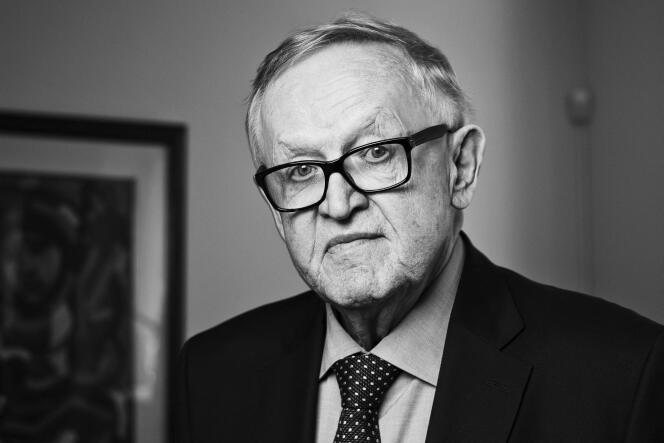


"Peace is a question of will. All conflicts can be settled, and there are no excuses for allowing them to become eternal," said former Finnish president Martti Ahtisaari on December 10, 2008, in Oslo, where he had just been awarded the Nobel Peace Prize for his tireless role as a mediator in international conflicts. After suffering from Alzheimer's disease, the diplomat passed away on Monday, October 16, at the age of 86.
"Finland has lost a remarkable statesman. Europe, a visionary. And the world, a champion of peace," was the reaction from European Commission President Ursula von der Leyen on the social network X (formerly Twitter), while NATO Secretary General Jens Stoltenberg lauded him as the "world champion of peace, security and conflict prevention."
In Finland, the news prompted considerable emotion. In a live televised address, President Sauli Niinistö hailed him as "a great Finn." Even before his death, he had already been elevated to the ranks of the country's "great historical figures," noted former prime minister Alexander Stubb, who chairs the board of the Crisis Management Initiative, created by Ahtisaari in 2005. Every year on November 10, "Ahtisaari Day" is celebrated, promoting peace education and conflict prevention in schools.
The displacement of his family "influenced his vision of the world and his actions. Not by tainting them with bitterness, but by enabling him to understand people's destinies and to know the value of peace," noted Niinistö. The son of a non-commissioned officer, Ahtisaari was born in 1937 in Karelia, a province annexed by the USSR during the Second World War. "I was only two years old when (...) war broke out, forcing my family to leave soon thereafter the town of Viipuri. Like several hundred thousand fellow Karelians, we became refugees in our own country as great power politics caused the borders of Finland to be redrawn and left my hometown as part of the Soviet Union," he recounted at the Nobel ceremony.
Ahtisaari grew up in Kuopio, central Finland. At 19, he joined the Social Democratic Party, then studied to become a primary school teacher. He only taught for one year. Recruited by a Swedish NGO, he was appointed director of a boarding school in Karachi, Pakistan, where he stayed for three years. Upon his return, he joined the Ministry of Foreign Affairs, in the Cooperation Department.
His diplomatic career began in 1973. At the age of 36, he was appointed Finland's ambassador to Tanzania. There he discovered the situation in Namibia, which was fighting for independence from South Africa. He took part in the decolonization process, which he would later describe as a "marathon," first as UN envoy for Namibia, then as special representative of the UN Secretary-General, until the country finally gained independence in 1990.
You have 37.51% of this article left to read. The rest is for subscribers only.
